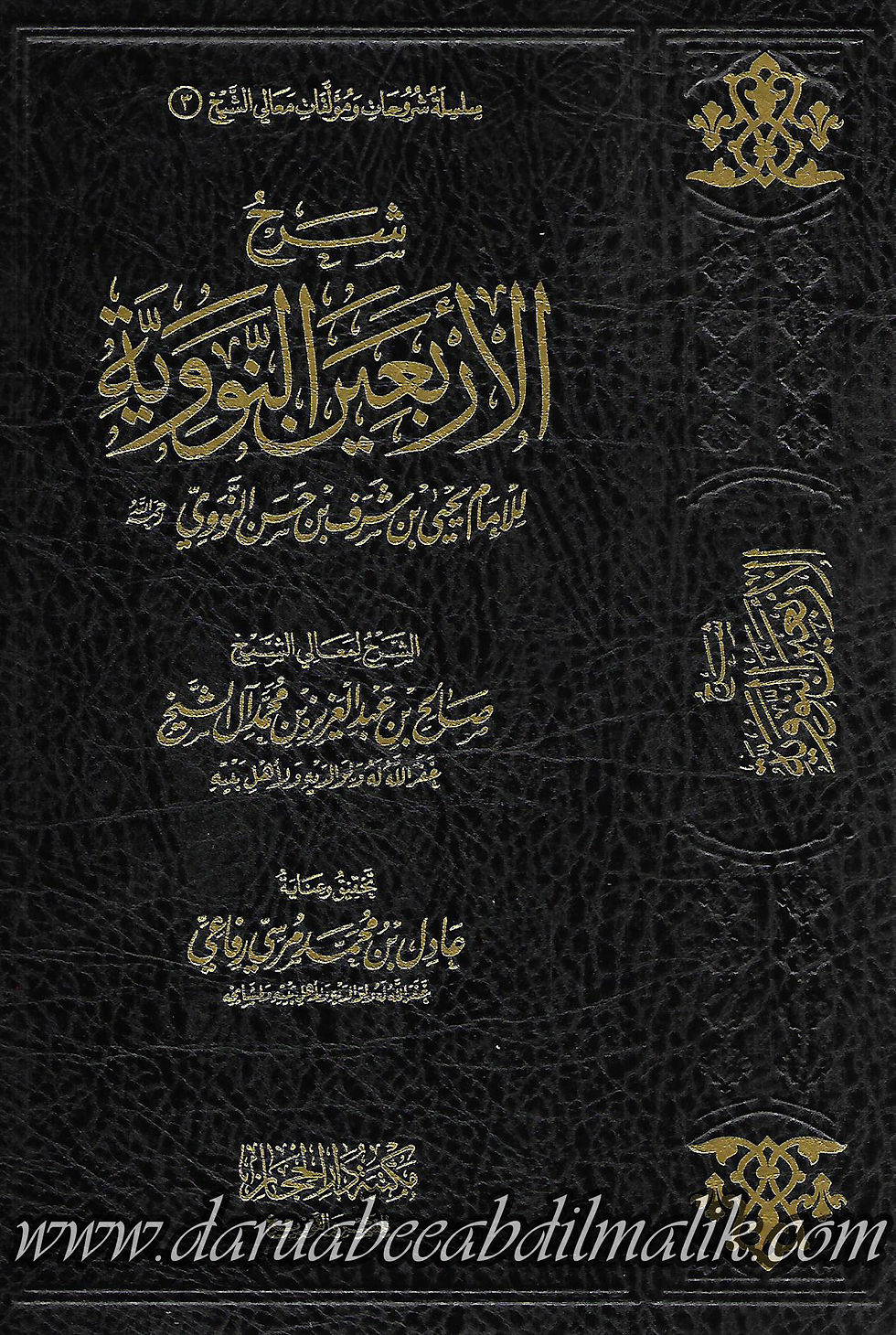Naylul Awtar Min Ahadith Sayyidil Akhyar Sharh Muntaqa Al-Akhbar which translates as The obtainment of the objective. The explanation of ‘The Chosen Reports from the Master of Good is an explanation of an earlier book produced by Shaykh al-Islam Abu Barakat Majd ad-Deen ‘Abd al-Salam ibn Abdullah known as Ibn Taymiyyah al-Kabir. He is not to be confused by his grandson Shaykh al-Islam Taqqiyudin Ibn Taymiyyah. He was born in the year 509 After Hijrah. He was known for his incredible fiqh, piety, and honesty and was widely accepted as the Shaykh of the Hanabilah in his day.
This book covers all aspects of Islam. Throughout the book one can see the incredible understanding of the Deen Imam Ash-Shawkani had. In almost all issues he will quote the opinions of all of the Scholars of this Ummah, including some Shi’a opinions. He does not restrict himself to the four Schools of thought. He is not afraid of delving into ‘controversial’ issues. He almost always quotes the Dhahiri stances, as well as many of the Zaydi stances. He explains the meanings of words by using classical shi’r (poetry) and dictionaries of old. In fact you see that he uses Al-Qamus in defining all of the words that may be labelled as vague or metaphorical. He delves into the sciences of hadith such as jarh wa ta’adil (criticism and praise) of the men in the chains. Many times he will state the “Rajih” or correct opinion according to his personal ijtihad. Other times, he refrains from forming a conclusion and prefers to take the path of caution (such as his commentary regarding the chapter of nashids and entertainment etc.).
The original compilation of the book, the Muntaqa, is widely known as a Hanbali manual of Hadith but as many other Hadith works in fiqh it can almost always be used as a generic or fiqh al-Muqaran work. As such this commentary falls into that later category.
ABOUT AL-SHAWKANI:
Muhammad Ibn Ali ibn Muhammad ibn Abdullaah As-Shawkani, the surname 'ash-Shawkani' is derived from Hijrah ash-Shawkan, which is a town outside San'a. Born into a Zaydi Shi'a Muslim family, ash-Shawkani later on called for a return to the textual sources of the Quran and hadith. He viewed himself as a mujtahid, or authority to whom others in the Muslim community had to defer in details of religious law. Of his work issuing fatwas, ash-Shawkani stated 'I acquired knowledge without a price and I wanted to give it thus. Part of the fatwa-issuing work of many noted scholars typically is devoted to the giving of ordinary opinions to private questioners. Ash-Shawkani refers both to his major fatwas, which were collected and preserved as a book, and to his 'shorter' fatwas, which he said 'could never be counted' and which were not recorded.He is credited with developing a series of syllabi for attaining various ranks of scholarship and used a strict system of legal analysis based on Sunni thought. He insisted that a jurists who wanted to be a mujtahid fī'l-madhhab (a scholar who is qualified to exercise ijtihad within a school of Islamic law), was required to do ijtihad, which stemmed from his opposition to taqlid for a mujtahid.
Despite his Shi'ite background, he is regarded by many as a revivalist and has influenced contemporary Islamic movements in the Muslim world such as the Ahl-i Hadith and Salafi Movement . His legal decisions and discussions are frequently used in contemporary debate among Muslim scholars. Allama Shawkani died in the year 1255 A.H.
This specific print of Nayl Awtar in my opinion is the best. Printed in KSA by Dar Ibn Jowzi in 16 beautiful volumes on yellow paper.
top of page
SKU : 9786038245293
176,50$Prix
Articles similaires
bottom of page
















